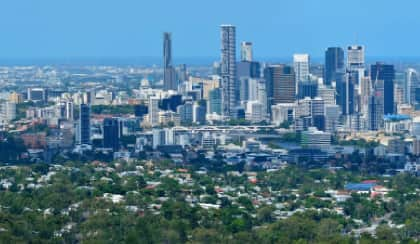Repeal ‘rare beast’ land tax regime: REIQ

Real Estate Institute of Queensland (REIQ) chief executive officer Antonia Mercorella believes the bill is “as unique as it is illogical”, slamming the government for passing the bill hastily and without detail or proper consultation with the proper, qualified stakeholders.
Her claims regarding the land tax laws recently passed by the state government that sees taxable land in Queensland and other relevant interstate lands will be used to calculate the relevant tax bracket that a property owner falls into.
For example, as REB reported earlier this year, if a person were to own $300,000 worth of Queensland property, they would be exempt from tax prior to 1 July. However, under the updated laws, if the same individual were to own $1 million worth of property in another city, they would be considered to own $1.3 million worth of taxable property — rather than the Queensland portion of $300,000, and subsequently taxed as such.
“It is irreconcilable that the Treasury expects legitimately raise tax on the basis of value of property held outside of Queensland, for the purpose of funding infrastructure within Queensland,” Ms Mercorella said, adding that the tax manages to hurt landholders, renters, companies, and small businesses all together.
“I would have thought that the Queensland economy would benefit from attracting businesses to operate in our state, bringing skills, innovation, and jobs for our growing population.”
Talking about the consequences of the legislative changes, she outlined how commercial rents will rise “through the roof”, while also sending a message to businesses to get “the monkey off their back” by packing up shop and taking their operations elsewhere.
Given the state is presently in the grips of the tightest rental market in its history — with 36 per cent of Queensland residents renters — Ms Mercorella believes now isn’t the time to risk “rocking the boat of private residential rental stock” given the majority of housing stock is supplied by private investors.
“Instead of a carrot, the government has yet again used the stick, in yet another desperate money grab from the property sector,” she said.
“By the government’s own example this land tax change will see a 332 per cent increase in land tax. This is likely to have a detrimental impact on the appeal of investing in Queensland, particularly when you consider the cumulative effect of all the legislative reform investors are being hit with.”
Having called the taxation changes a “slap in the face” when they were initially proposed in December 2021, the institute proclaimed it would continue its advocacy against these “impractical land tax changes” and encouraged property owners to do similar.
Ms Mercorella stressed that there are “plenty of reasons to invest in the Sunshine State”, but she conceded that “with this land tax regime the Treasury has not only knocked the confidence out of Queensland property, it’s delivered a king hit”.
“For these reasons, the REIQ will continue to advocate against these land tax changes and is calling on the Treasurer to repeal this bombshell legislative reform before it comes into effect in 2023.
“The REIQ is willing to work with the Queensland government on more innovative solutions to remove the burden and inefficiencies of the current taxation system,” she concluded.
